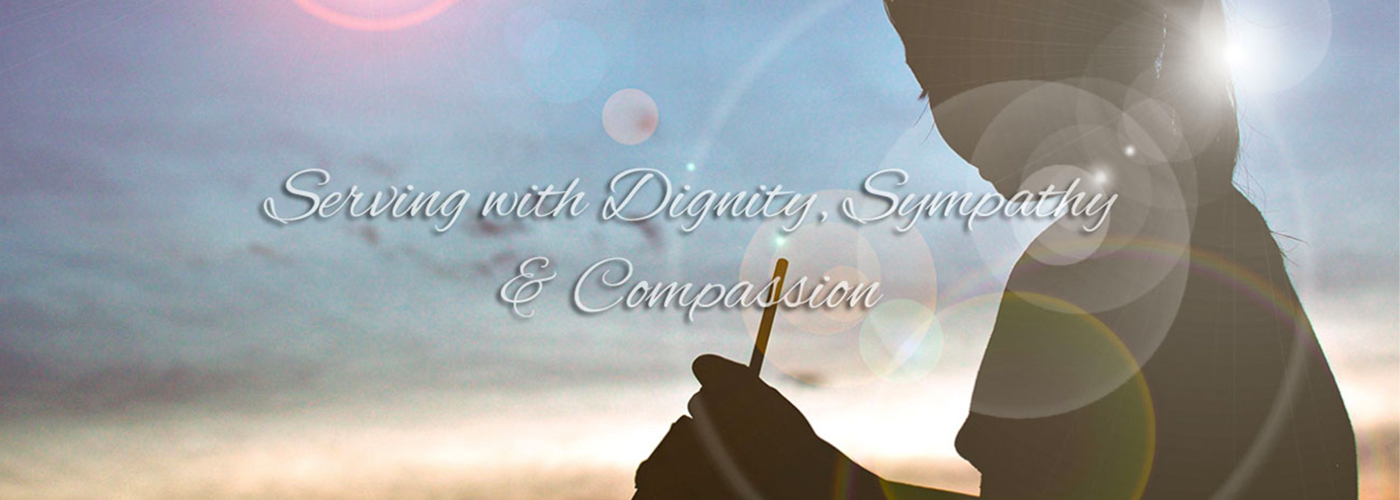
How To Prepare For A Funeral
What To Do When A Loved One Passes Away
How to choose a suitable Funeral Package/ Funeral Service Provider
Types of Funeral Flowers and Their Meanings
5 Things You Need To Know When Attending A Funeral Wake
Things To Avoid after A Funeral (Buddhist/ Taoist)
Featured Platforms
How To Prepare For A Funeral
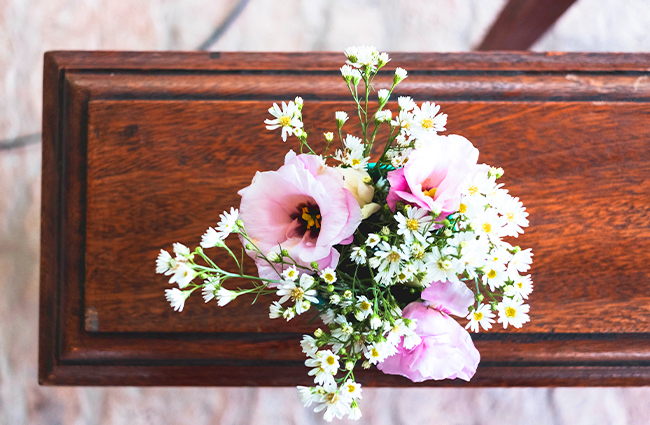
Here are 5 important questions that you will need to discuss with your family before the start of the funeral service.
1. What clothing should we prepare?
Prepare a presentable set of clothing for the deceased’s final service – such as a suit/dress that he/she wore for any past event. This includes the undergarments, socks, shoes, and any other accessories.
2. Which photograph should we choose?
Decide on one photograph to be enlarged for the funeral service. Our funeral director can assist with any necessary photoshop editing.
3. What is the preferred religious service?
Religious service plays an important role during funerals. If there was a switch in religion during the deceased’s final days, family members must decide on the preferred religious rites for the funeral service.
For the full list of funeral services packages that we are offering: Click Here
4. Where should we conduct the burial or cremation?
For ground burial, only Chua Chu Kang Cemetery Complex is available in Singapore. The area is separated into different sections based on religion.
For cremation, there are 3 options depending on the religion. For all religions, it can be done at the Mandai Government Crematorium. Whereas for Buddhists or Taoists, it can be done at Kong Meng San Phor Kark See Monastery (also commonly known as Bright Hill Temple), or at Tse Toh Aum Temple.
5. Where should we keep the ashes?
Ashes may be stored at either government-managed columbaria, private temples, or churches. Our funeral directors can assist with purchasing a niche at the government columbaria.
What To Do When A Loved One Passes Away
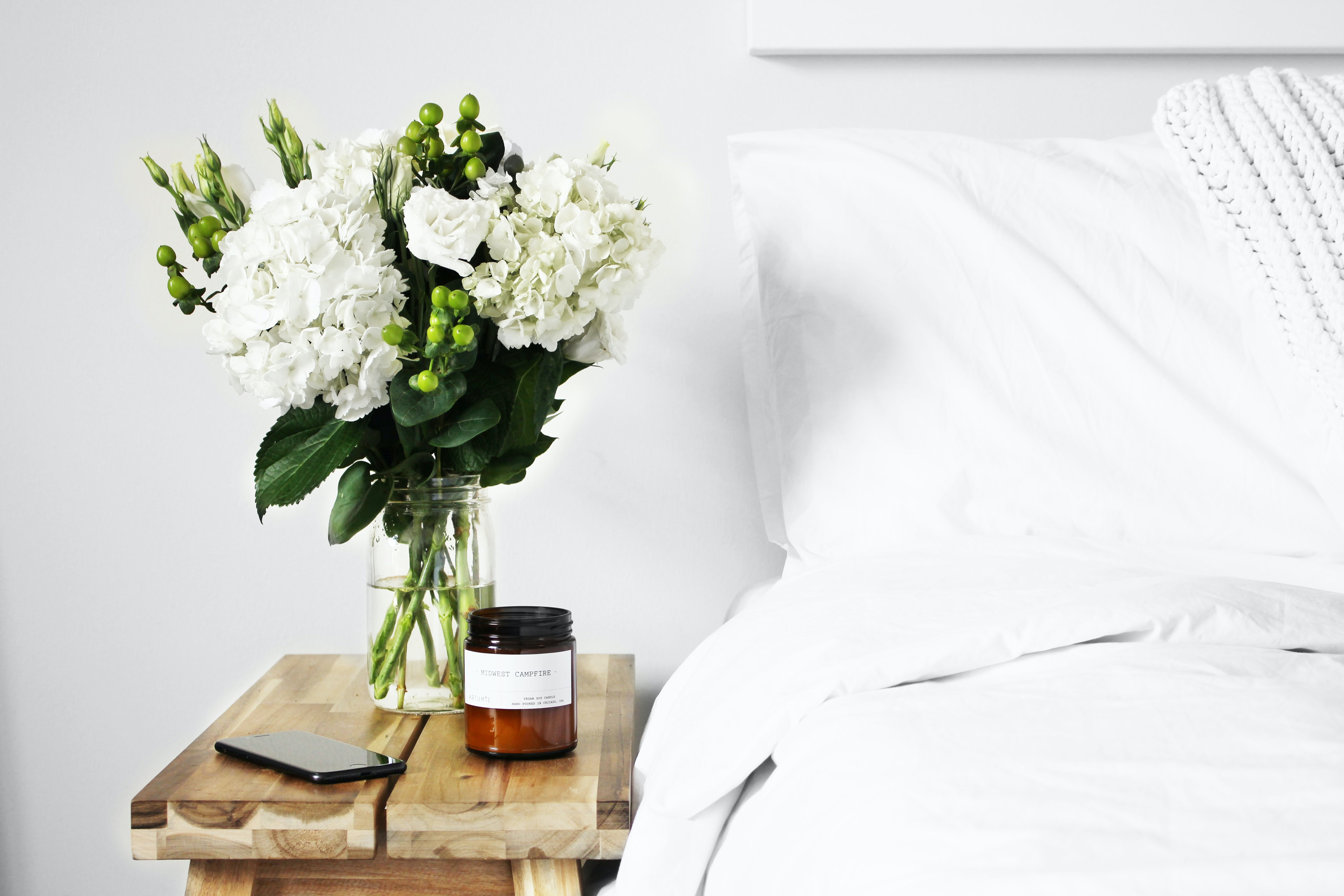
Step 1: Download Digital Death Certificate
(i) collect the body from the home or hospital mortuary;
(ii) send the body for embalming if required; and
(iii) deliver the body to the location of the wake.
How to choose a suitable Funeral Package/ Funeral Service Provider
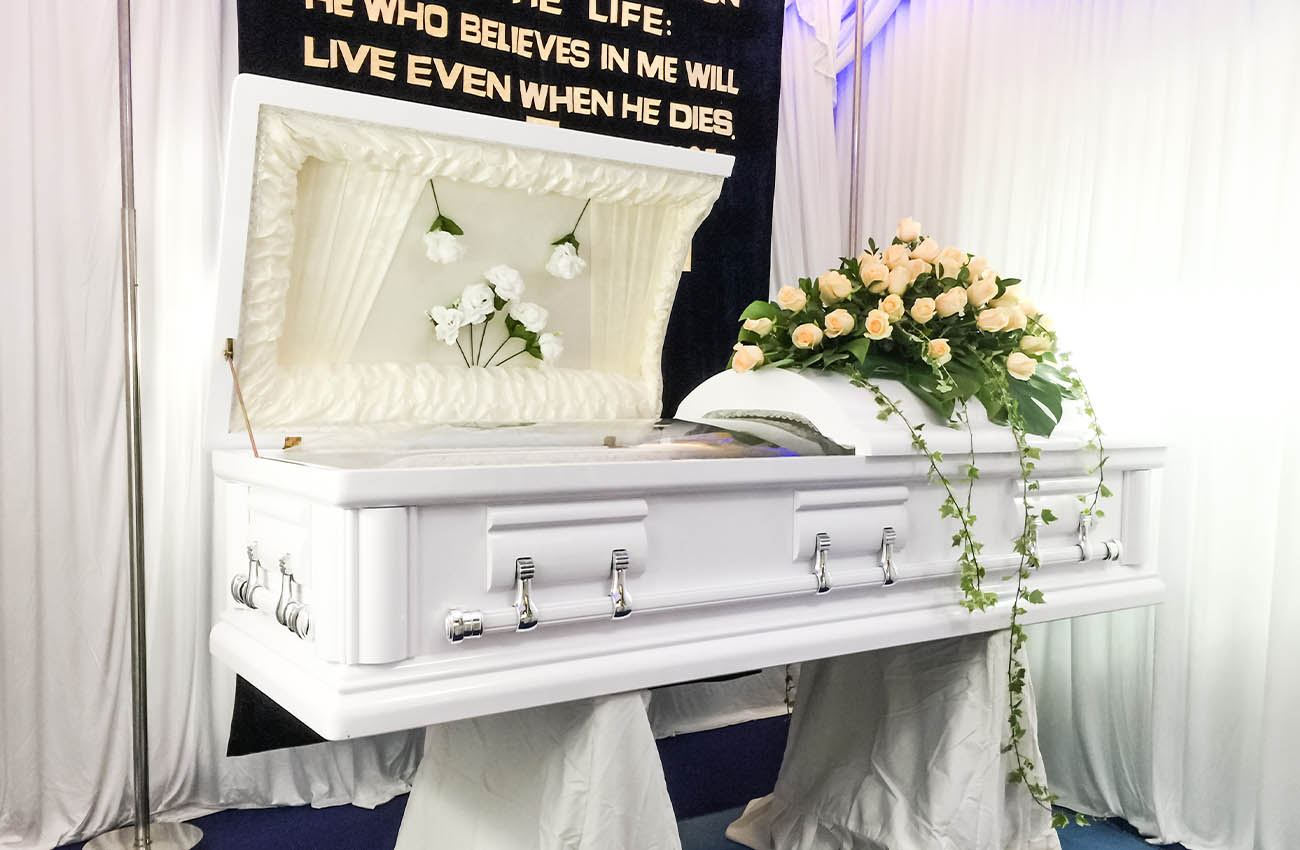
In Singapore, the cost of a funeral service depends on different needs and expectations. With so many variations and packages out in the market, it is important that family members look for a trustworthy and transparent funeral service provider. Most packages come with hidden costs and additional expenses. Furthermore, the additional cost will only be made known at the end of the funeral.
As such, we have come up with the top 5 things that you should look out for when selecting a funeral package.
1) Take note of the content within the funeral package
Very often, family members will be short-changed as packages are non-comprehensive. This gives some companies the chance to include other items at additional charges, without making it clear to their clients.
2) Do not be misled by low prices
Prices actually depend on the type of funeral service, such as religious or non-religious funerals, and whether there are any specific requirements. Many budget packages in the market are often low-end, which require family members to top up extra money for a decent setup or a decent venue.
Funeral services are important as the last chapter to the deceased’s journey and should be handled with care. To find a decent funeral service provider within budget and with satisfactory service, click here to find out more.
3) Ask for pictures
Established funeral service companies will have many examples of varying setups that they have arranged previously. Family members are encouraged to speak to the funeral director to understand more, and pictures will help in having a better understanding of what to expect. Viewing their different setups also ensures that you have a gauge on the company’s service quality.
4) Make a comparison between funeral companies
With so many options out in the market, do your own due diligence, ask questions, and get a quotation. Source around to research and compare prices, as well as the different funeral setups available. Looking at different packages will help you to better understand the market rate and compare the setups, and additional services offered by the funeral company.
5) Take note of the history of the funeral company
Besides cost and package types, family members should do their research on the funeral service company. As it’s an important event to mark a farewell to the deceased, it is essential that you look for well-established funeral services that have been in the market for a long time.
There have been many instances of sham companies that are in fact intermediaries. They often rely on sub-contractors to gain higher profits, with no quality check. However, here at Singapore Funeral Group, you can be assured that we use 100% fresh flowers, with absolute quality assurance.
Types of Funeral Flowers and Their Meanings
Lilies:
Lilies are the usually most popular choice for funeral flowers, as they represent the restoration of innocence to the departed soul. This also brings a sense of peace and serenity to the funeral.
Roses:
The various colours of roses represent different meanings, and white roses are the most appropriate of the group, signifying reverence, innocence, and youthfulness. Red, pink and yellow flowers express feelings of respect, love, and friendship respectively.
While these flowers can be used for funeral setups as well, it depends on the family’s preferences and traditions. Visitors seeking to bring flowers to a funeral should stick to bringing white roses or white flowers in general.
Orchids:
Orchids symbolise sympathy and everlasting love for the dearly departed. Potted orchid plants can make for a unique funeral setup, with both pink and white variations being suitable.
Chrysanthemums:
Especially in the Asian context, Chrysanthemum flowers are commonly used in funeral floral arrangements to say goodbye. White Chrysanthemums in particular are symbolic of bidding farewell, while celebrating a life well-lived by the dearly departed.
Carnations:
Both pink and white carnations are used for funeral floral setups, to express sympathy and remembrance for the dearly departed. White carnations are especially symbolic of grief and a deep sense of sorrow, with everlasting love and loyalty. As carnations are long-lasting, they are often a popular choice for setups spanning over several days.
Should you require any further information or assistance for a funeral setup, do feel free to contact our professional team of funeral directors here.
5 Things You Need To Know When Attending A Funeral Wake
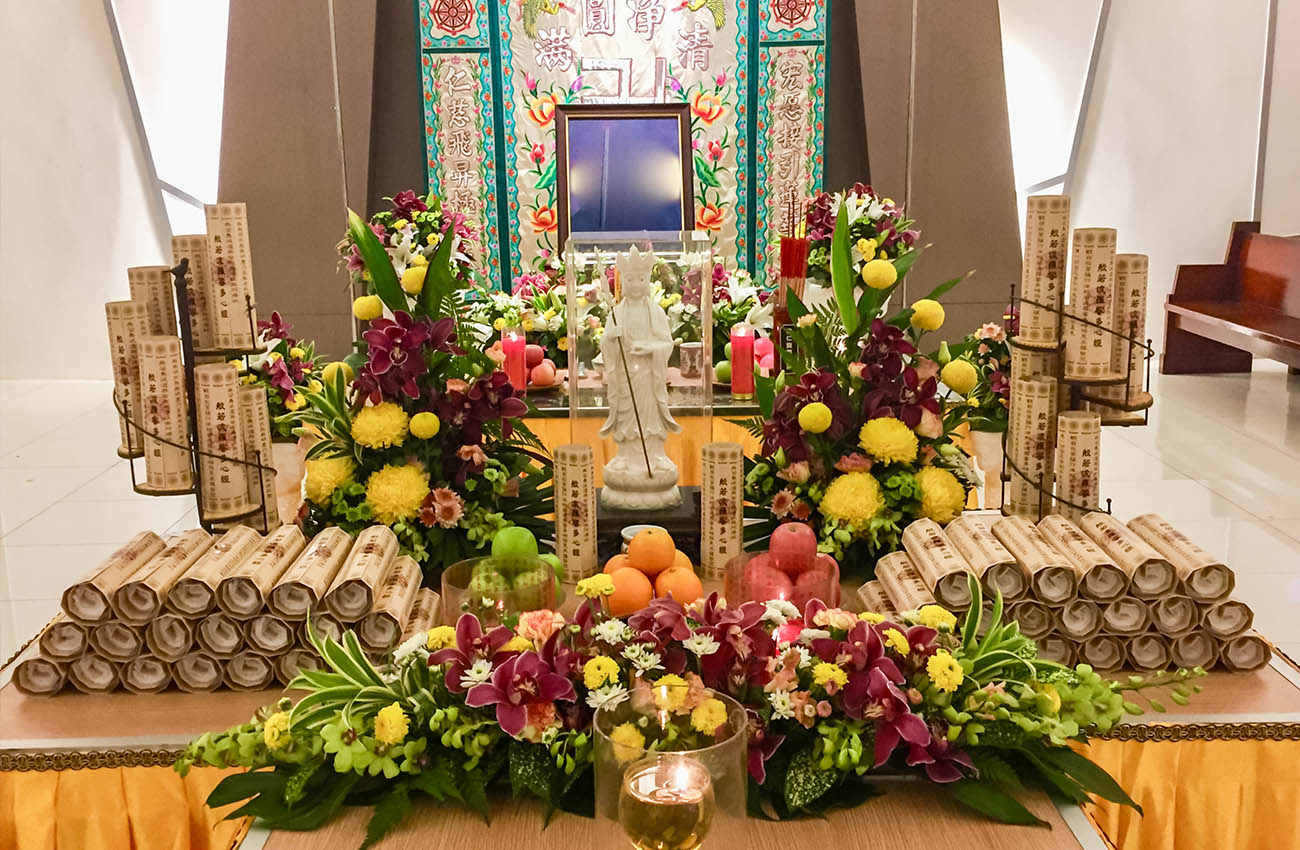
When attending a funeral wake, it is important to be mindful of these basic etiquettes.
1. Dress appropriately
In general, dress simply in dark coloured clothing. For females, do refrain from wearing revealing attire, including miniskirts or shorts.
2. Pay respects first
After arriving and identifying your purpose to ensure that you are attending the correct wake, approach the memorial table to pay your respects.
If you are offering an incense, light one incense stick and offer it into the censer. Following which, make three respectful bows.
If you do not use incense, maintain a moment of silence and send your deepest well wishes to the deceased.
3. Offer your condolences
There is no specific range to how much money you should give at a wake. This is dependent on the relationship between you and the person you are visiting, as well as your own financial situation.
However, if you are the one receiving the contribution, you must ensure that you return back the equivalent amount or more to those who had contributed.
4. Take a red thread
Traditionally, red candles were given out in appreciation for one’s attendance. However, in modern times, this has now been replaced with red threads which can be found in the tidbits tray on every table. The red threads symbolize auspiciousness and must be discarded before entering your house.
5. Be helpful
Besides giving your greatest care and support to the bereaved family, be helpful while you are at the wake. Some small gestures include buying food or snacks over, folding joss paper, and arranging the tables and chairs at the wake.
Things To Avoid after A Funeral (Buddhist/ Taoist)
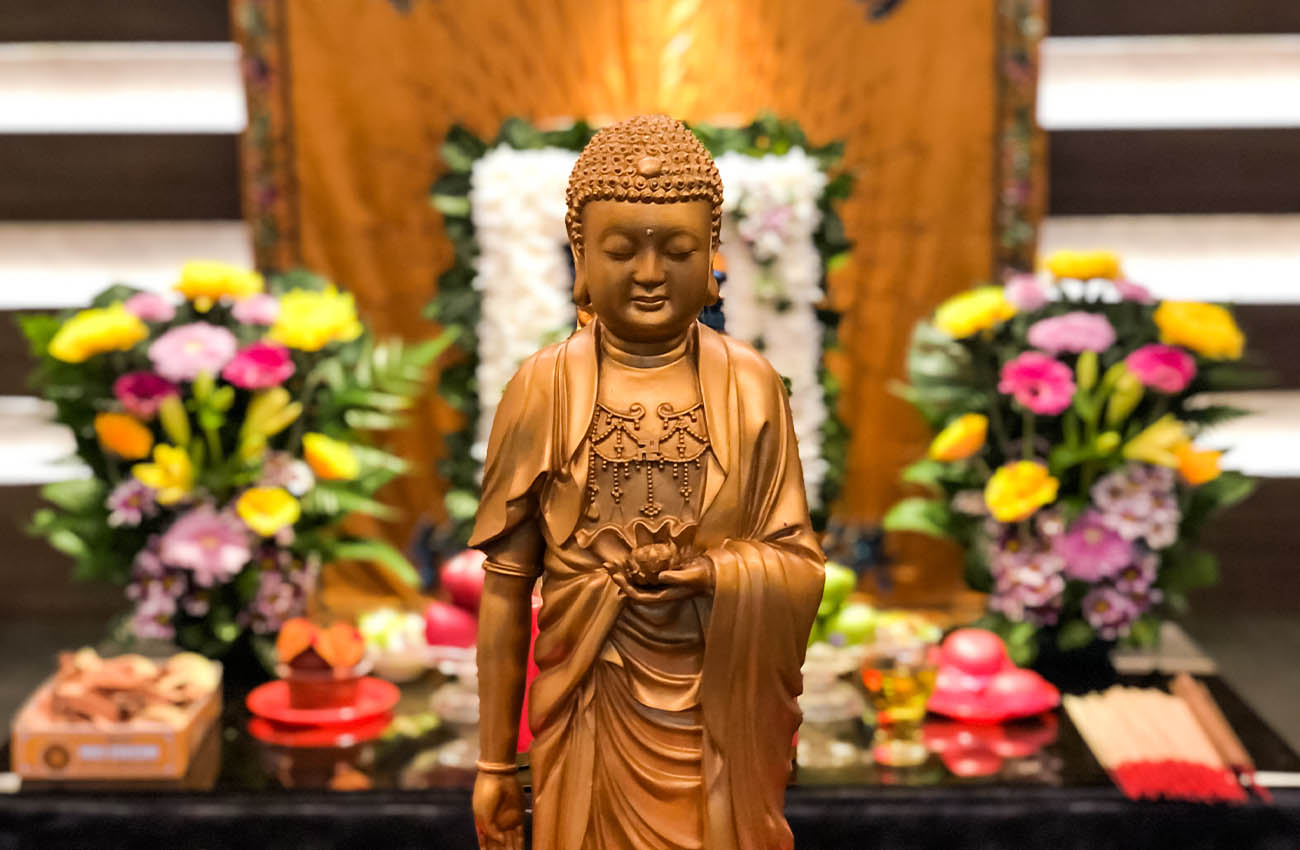
We have consolidated guidance from the relevant cultural masters and have adapted their advice to fit the modern day society. The following are some improvised post-funeral observations for your reference:
During the wake period:
-
Refrain from trimming your nails or hair, as these have been given by one’s parents. During the initial days of their passing, such acts must be avoided.
-
Avoid entertainment, which is a basic rule during such an event.
Within 49 days of their passing:
-
Refrain from visiting friends or relatives and instead, use this time to reflect about life and allow your emotions to settle down.
-
Make offerings weekly or fortnightly before the spiritual tablet, in memory and appreciation.
Within 100 days of their passing:
-
Avoid wearing bright coloured clothing and refrain from attending weddings, celebratory events or funeral wakes of friends or acquaintances.
-
Any Chinese customary weddings should be conducted within this period. After these 100 days, it is advisable to postpone the event till a year later.
-
On the 100th day, make an offering at the columbarium or grave site.
Before the 1st year anniversary of the passing
-
Refrain from conducting celebrations at home, which includes Chinese New Year celebrations and Chinese festival celebrations. Instead, make simple offerings before their tablet to keep them in memory.
-
Visitations to your relatives’ houses during the Chinese New Year period is also not recommended.
On the 1st year death anniversary, the family will wear red after the “combination prayers”, to mark the end of the mourning period.
Featured Platforms

Top 20 Funeral Services in Singapore
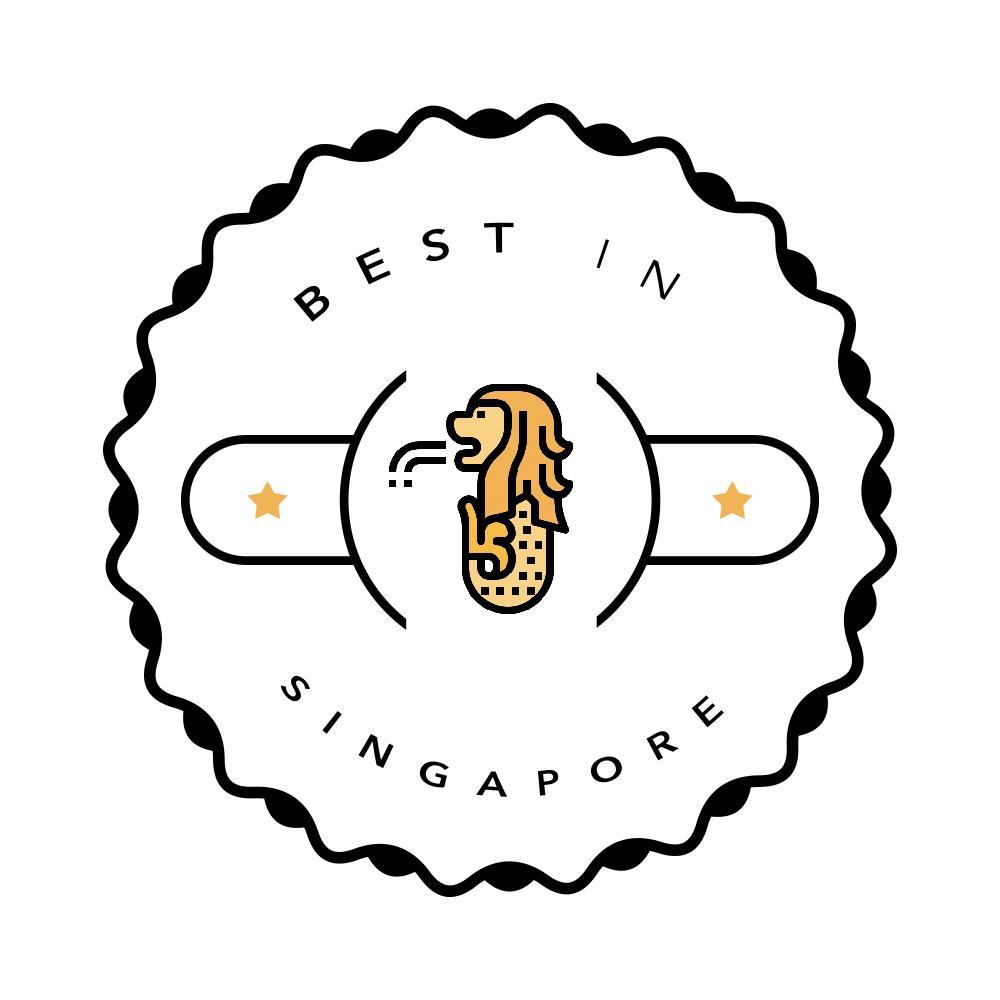
Listed on "20 Best Funeral Services in Singapore" (2021 List)
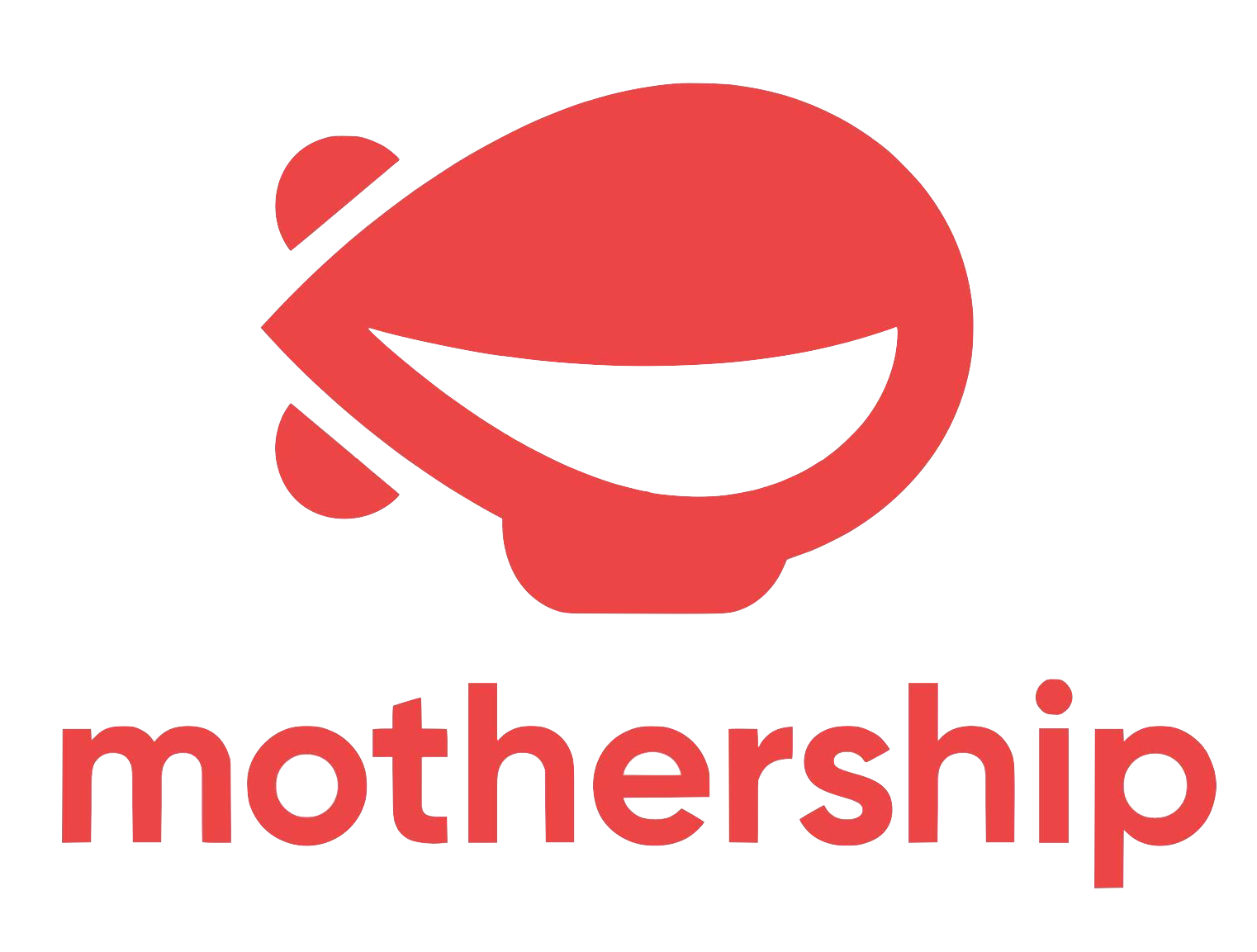
Stories of us: The youngest employee of this funeral company is 22 and its oldest is only 27. Its founder Nicky Teo tells us why he is open to welcoming more youngsters to learn the trade.

Listed on "The 9 Options for the Best Buddhist Funeral in Singapore" (2021 List)

Listed on "The 8 Options for the Best Taoist Funeral in Singapore" (2021 List)

Listed on "The 3 Options for the Best Funeral Services in Singapore" (2021 List)
